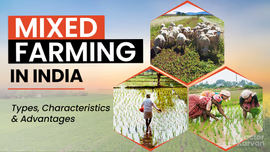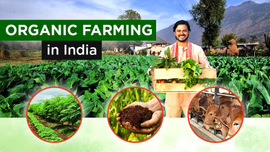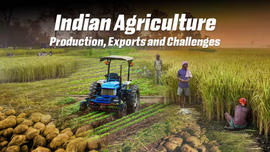What is Plantation Agriculture: Meaning, Crops, Features and Scope

Plantation agriculture is a farming method where a large land area is used to plant high-value commercial crops. Plantation crops examples include coconut, coffee, tea, rubber, arecanut, etc. One of the key features of plantation farming is that it is used to cultivate high-value or cash crops on a large scale to earn profit. Plantation agriculture has a huge potential for increasing India's foreign exchange earnings. Check out the article to know more about plantation farming in detail.
Table of Contents
- What is Plantation Agriculture?
- Major Plantation Crops in India
- Features of Plantation Agriculture
- Scope for Plantation Crops in India
What is Plantation Agriculture?
Plantation agriculture is an extensive type of commercial farming in India where a large area of land is used for the plantation of high-value crops. Thus, it mainly involves cultivating cash crops on a large scale to earn profit. Also, farmers need to invest a significant amount of capital and labour to grow plantation crops. Plantation farming is practised worldwide but it is most common in tropical and subtropical regions.
Major Plantation Crops in India
India has a range of agroclimatic conditions along with different soil types and varying altitudes. This is why a variety of plant species and crops can be grown across the country. Below are the main plantation crops grown in India:
- Coconut
- Coffee
- Tea
- Rubber
- Arecanut
- Cashewnut
- Cocoa
- Oil Palm
- Betelvine
Coconut
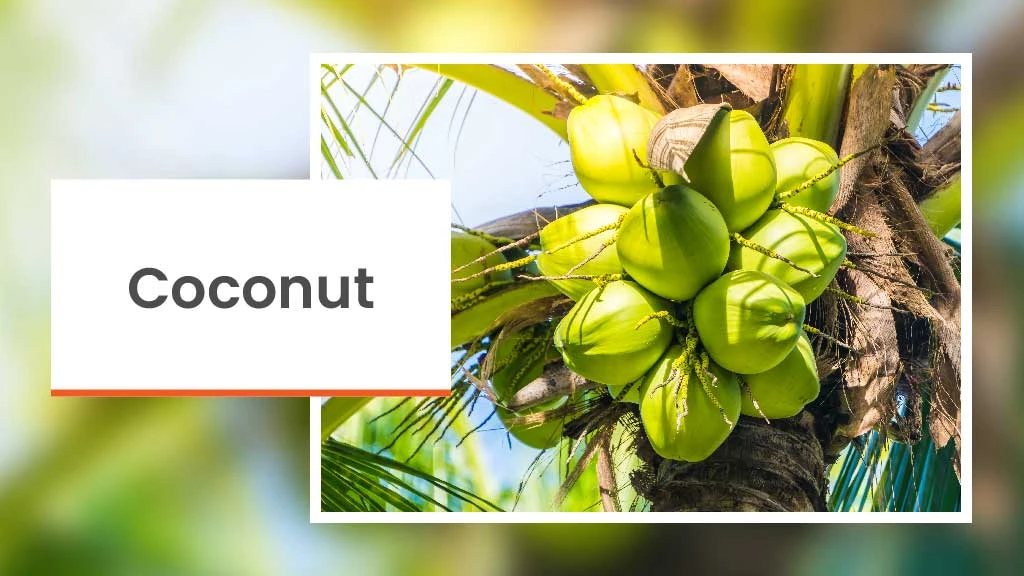
India is considered one of the leading producers of coconut in the world. In 2021, the total production of coconut was 20,736 million nuts, accounting for over 31% of the global coconut production. The leading coconut-producing states in India are Kerala, Karnataka, Tamil Nadu and Andhra Pradesh.
The ideal growth conditions for this tropical plant include a 27±5°C temperature, 2000 mm rainfall and 2000 hrs of sunshine annually. Coconut & its by-products, fibre & oil are used in various industries such as food, cosmetics, pharma and soap.
Coffee

As per the Coffee Board of India, India's total production stood at 352,000 metric tons (MT) in the final estimate for 2022-2023. Diverse climatic conditions suit the cultivation of different coffee species, including Arabicas and Robustas. They demand slightly acidic and well-drained soil that is rich in organic matter. Also, the ideal temperature range is 15°C to 30°C. The top coffee-producing states in India are Karnataka, Kerala and Tamil Nadu.
Tea
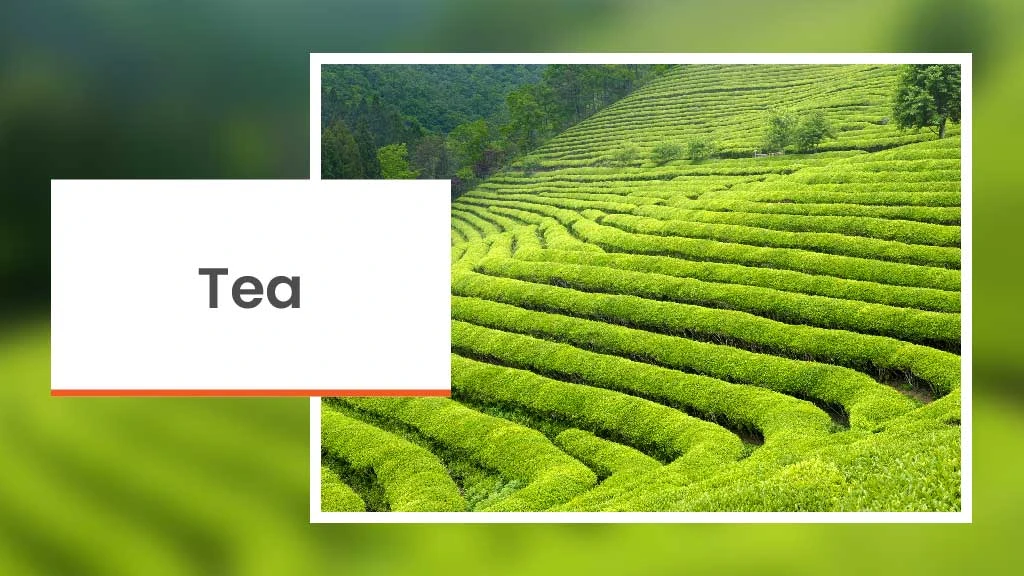
India ranks in second position as the largest producer of tea, with a total production of around 1,350 million kilograms. Also, the Indian tea industry directly employs 1.16 million individuals. Domestic tea consumption is highest in India owing to its multiple benefits, including caffeine, micronutrients and flavonoids.
The ideal temperature range for cultivation of tea is 16°C to 32°C. In addition, it demands an annual rainfall of around 150 cm. The different types of tea include CTC, Orthodox, Black, Green, White and Oolong. The states involved in the extensive cultivation of tea are Karnataka, Kerala and Tamil Nadu.
Rubber

In FY2023, India's total natural rubber production was 839,000 tonnes across 8,50,000 hectares of land. Rubber cultivation demands loamy or laterite soil on undulated land or slopes so there is no water stagnation.
Rubber is mainly used in the automotive tyre sector in India. Other rubber products include footwear, belts and hoses, camelback and latex products, bicycle tyres and tubes. Rubber cultivation is prevalent in states like Kerala, Tamil Nadu and North Eastern states.
Arecanut
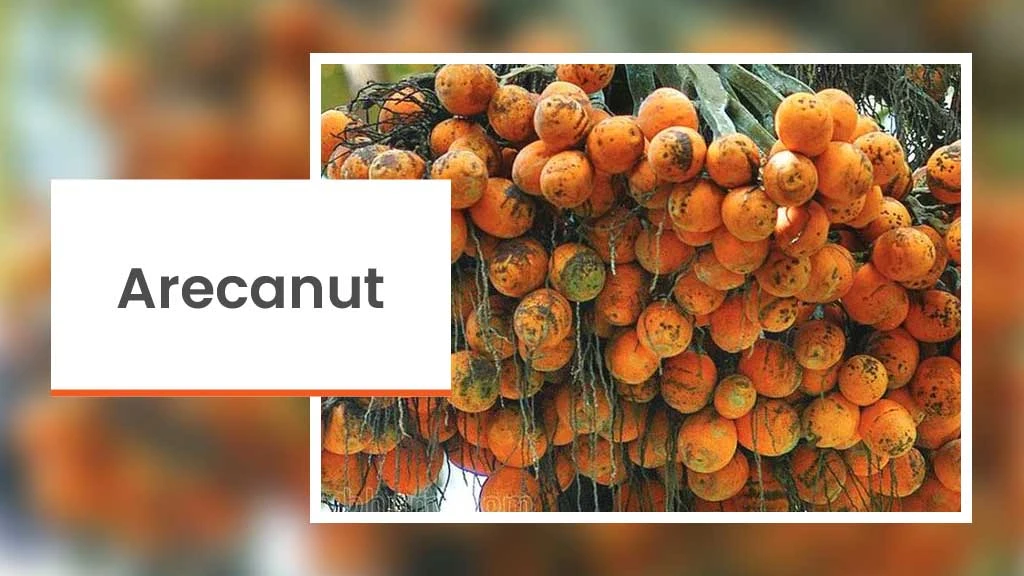
India is not only the largest producer of arecanuts but also the largest consumer of them. During 2020-21, the total production was around 1,563 thousand MT. Generally, people use these nuts for masticatory purposes in the form of chewing nuts.
The suitable growth conditions for arecanuts include 14-36°C temperature and 750 mm - 4,500 mm of annual rainfall. Arecanut cultivation is ideal in fertile laterite (red clay) and clay loam types of soil. The top states producing arecanuts are Karnataka, Kerala, Assam and Meghalaya.
Cashewnut
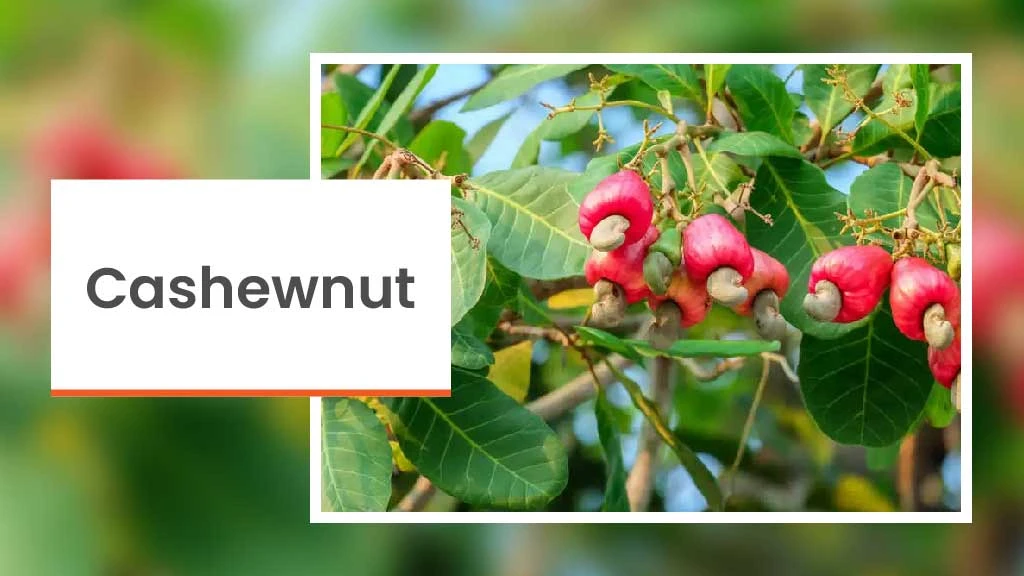
The total cashew nut production during 2021-22 was 0.77 million tonnes, which makes India the leading cashew-producing country. Also, the total area under cashew nut production is 0.7 million hectares. This crop can handle high temperatures and grows well in high humidity. A temperature range of 20°C - 38°C and annual rainfall of 2,000 mm to 3,500 mm is suitable for cashew cultivation.
Deep sandy loam and well-drained soils are fit to cultivate cashews. Cashew nuts are widely used for culinary purposes in India. They are an important ingredient in traditional dishes like Shahi Paneer and Indian sweets like Kaju Katli. Cashew nuts are majorly grown in states like Maharashtra, Andhra Pradesh, Orissa and Karnataka.
Cocoa
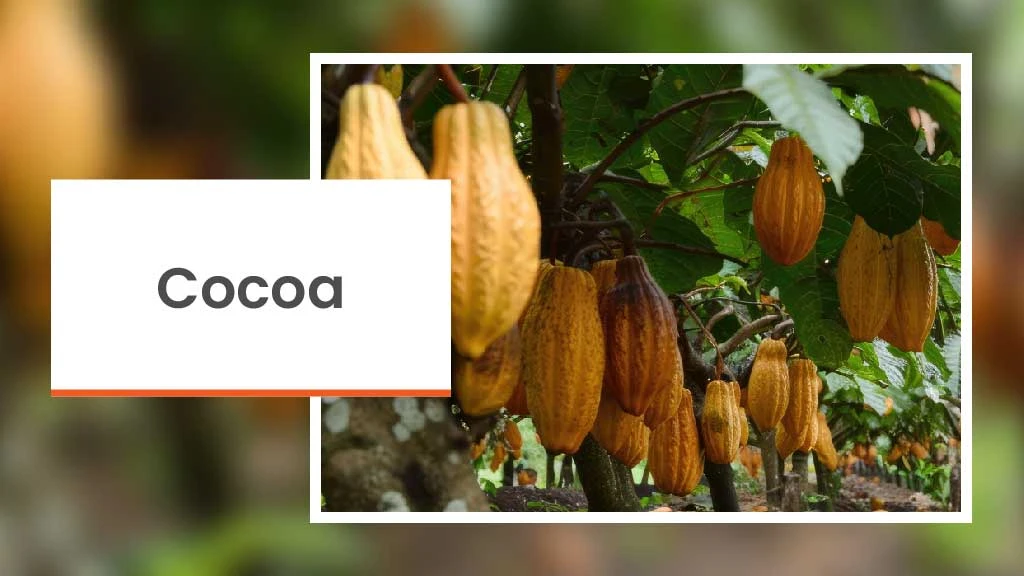
Cocoa is among the most important beverage crops in the world. In India, it is usually intercropped in arecanut and coconut gardens. It is the primary ingredient for making chocolates. This is why it is always high in demand globally. During 2022-23, the export of around 34,250 MT of Cocoa products was observed, which was worth around ₹1,242 Crores.
Cocoa requires a temperature of 15°C - 35°C and annual rainfall of 1000 mm – 2000 mm. This perennial crop grows best in red laterite soils. Also, Indian conditions favour the cultivation of the Forastero variety of Cocoa. Cocoa cultivation is common in Tamil Nadu, Andhra Pradesh, Karnataka and Kerala.
Oil Palm
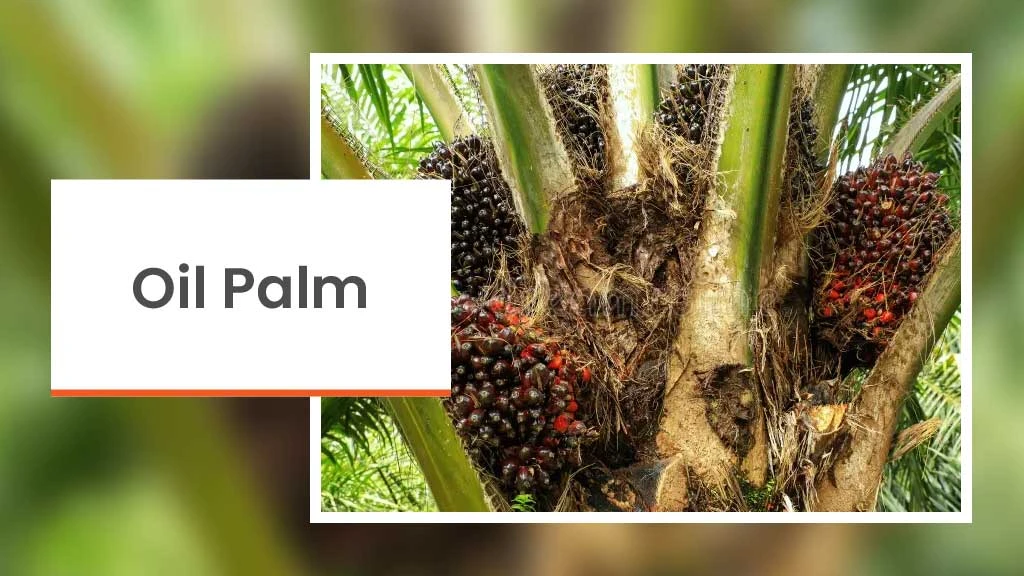
Oil palm is important for India as it is among the highest-yielding oilseed crops. It is accountable for around 60% of the country's edible oil consumption. This crop has healthy growth in temperatures between 21°C and 32°C and loamy soils. Also, annual rainfall of 200 cm is conducive to its cultivation.
Palm oil is a key product of this crop that finds use in multiple sectors, including biofuel, cosmetics and food. During 2020-21, the total Crude Palm Oil production was 2,88,056 metric tons. The majority of oil palm is cultivated in Kerala, Andhra Pradesh and Telangana.
Betelvine

Betelvine is also known as ‘pan’ and is consumed or chewed widely across India. This perennial, woody climber crop is usually cultivated in subtropic and tropic regions. The most suitable soil conditions for betelvine are fertile clay loams. Betelvine demands proper irrigation and shade for successful cultivation. Top betel vine producing states include West Bengal, Andhra Pradesh and Karnataka.
Features of Plantation Agriculture
Some primary characteristics of plantation agriculture in India are listed below:
- High-Value Crops: Plantation farming involves the cultivation of commercial crops that attract high prices in both domestic and international markets.
- Large-Scale Farming: Plantation crops are cultivated on a large scale. This is typically because they are grown for commercial purposes or to generate greater revenue.
- Export Market: Plantation crops are commercial crop that are highly demanded in the international market. They are export-oriented and help increase India's export earnings.
Scope for Plantation Crops in India
There is a huge scope for expanding plantation crops in non-traditional regions with good irrigation potential. The Northeastern states are an excellent example of such regions. Drip irrigation has made the cultivation of plantation crops more feasible in new and non-traditional areas.
These crops have huge potential for increasing India's foreign exchange earnings. It also implies higher earnings for farmers. Also, plantation crops are grown throughout the year and thus offer a major source of employment for workers. These crops also support sustainable agriculture by offering a scope for crop diversification.
Frequently Asked Questions On What is Plantation Agriculture: Meaning, Crops, Features and Scope
1. What is plantation agriculture?
Plantation agriculture is the practice of planting cash crops on a large scale to earn high profits.
2. Why is plantation agriculture important?
Plantation agriculture is important as it offers economic benefits not only to farmers but also to the national economy.
3. What are the examples of plantation crops?
Examples of plantation crops include coconut, coffee, tea, rubber, arecanut, cashewnut, cocoa, oil palm and betelvine.
4. What are the benefits of plantation agriculture?
The key benefits of plantation agriculture include higher earnings, more foreign exchange and job creation.
5. What is the difference between commercial farming and plantation farming?
There is no major difference between commercial farming and plantation farming. In fact, plantation farming is widely considered one of the types of commercial farming.


Related Blogs
